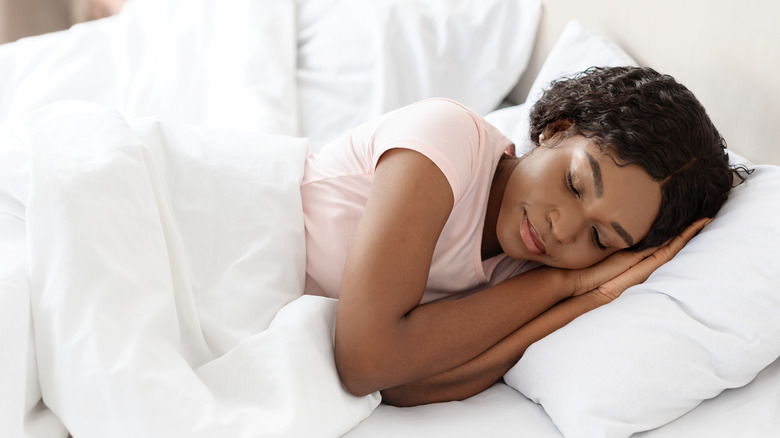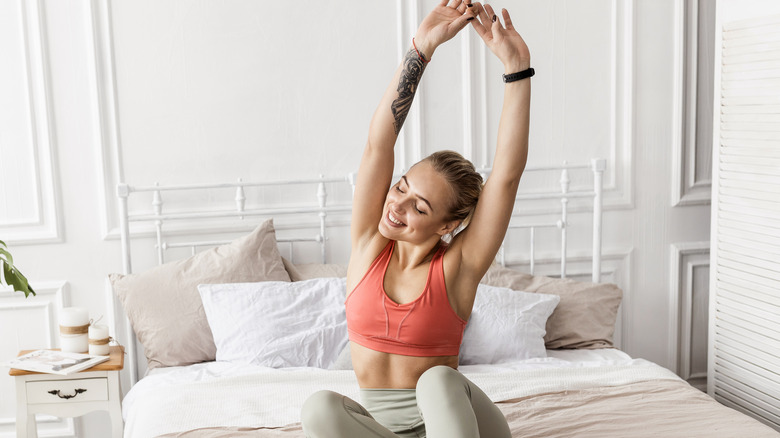The TikTok Hack For Falling Asleep Fast
Sleep can be hard to come by sometimes, and falling asleep when you have the time isn't always easy either. Sleeping on your back is believed by some to help sleep issues, and others believe that sleeping naked is good for you, too. In any case, there's no single resolve to getting better sleep, but there may be a few things you can do in tandem to help you wake up more refreshed.
According to Healthline, when catching up on sleep, it is important to have a regular sleep schedule. Our bodies naturally pick up on and adapt to patterns, so going to bed at a similar time each night can help your circadian rhythm balance itself and therefore drift you off into a deep slumber quicker.
At the same time, ensuring your body knows the clear difference between light and darkness can help, too. Our bodies naturally become more alert when exposed to light (via Healthline), while darkness has the opposite reaction. Because of this, your body won't react to darkness properly when it's time to sleep if you've been in the dark all day. Therefore, seeing plenty of light throughout the day can help your body signal bedtime at the end of the day.
These tips and tricks will no doubt help your sleep schedule. But to fall asleep faster, some recommend drinking herbal tea or practicing breathing exercises (via Bustle). TikTok, however, may have the best hack for falling asleep fast.
This hack may feel like a no-brainer but it's absolutely worth it
TikToker @kienvuumd, a practicing medical doctor named Kien Vuu, posted a video to the short-form video platform in which he details that people sleep faster if they stop using their phone a while before bed. According to Vuu, cell phones emit blue light, and this light interferes with our ability to sleep.
For Vuu, the recommended time to put your phone down before bed is two hours. While this may sound like a lot, better sleep may be worth it, and an all-or-nothing mindset shouldn't apply here. If you can put it down for 15 minutes or an hour before bed, this no doubt will help your brain quiet down.
According to Cleveland Clinic, screens stop our minds from decompressing and instead keep them busy. This activity prevents us from sleeping. This activity also delays REM sleep when we do fall asleep. REM sleep is when we're regenerating the most energy, so this delay — and consequential lack of REM sleep — can have grave consequences if it happens every single night.
The ultimate advice here is to simply give your mind time to unwind, even if it's just for a little while. Tea, exercise, and a consistent schedule help, too, but don't forget to put your phone down as well.

